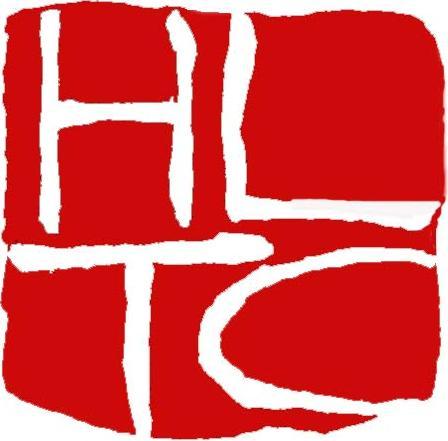COMP 3211 - Spring 2012
Spring 2012, COMP 3211 Introduction to Artificial Intelligence [3-0-1:3]
Lecture 1, We 18:00, Rm 5487/5493 and Fr 12:00, Rm 5583 at L29/30
Prof. Dekai WU, Rm 3539,
2358-6989, dekai@cs.ust.hk
Lab 1A TA: Jackie LO Chi-kiu, Tu 18:00-18:50, Rm 5583 at L29/30, jackielo@cs.ust.hk
You are welcome to knock on the door of the instructor any time. The TAs' office hours are posted at http://course.cs.ust.hk/comp3211/ta/.
ANNOUNCEMENTS
Welcome to COMP3211! (This course was formerly called COMP221.) Tutorials will begin after Week 2.
Always check the Discussion Forum for up-to-the-minute
announcements.
Discussion forum is at http://comp151.cse.ust.hk/~dekai/content/?q=forum/3.
Always read before asking/posting/emailing your question. This forum is based
on modern, powerful software, instead of using the old clunky ITSC newsgroup.
Course home page is at http://www.cs.ust.hk/~dekai/3211/.
Tutorial info is at http://course.cs.ust.hk/comp3211/ta/.
ORIENTATION
Course Description
COMP 3211. Foundations underlying design of intelligent systems. Relations between logical, statistical, cognitive, biological paradigms; basic techniques for heuristic search, theorem proving, knowledge representation, adaptation; applications in vision, language, planning, expert systems.
TEXTBOOKS
- Introduction to Text Alignment: Statistical Machine Translation Models from Bitexts to Bigrammars (forthcoming), by Dekai WU. Springer, 2012.
- Artificial Intelligence: A Modern Approach (2nd Edition), by Stuart RUSSELL and Peter NORVIG. Prentice-Hall, 2003. ISBN-13: 978-0137903955.
- Structure and Interpretation of Computer Programs (2nd edition),
by Harold ABELSON and Gerald Jay SUSSMAN,
with Julie SUSSMAN. MIT Press, 1984. ISBN-10: 0-262-01077-1.
Full text and code are available online at no cost for the Scheme book (Structure and Interpretation of Computer Programs) at http://mitpress.mit.edu/sicp/.
HONOR POLICY
To receive a passing grade, you are required to sign an honor statement acknowledging that you understand and will uphold all policies on plagiarism and collaboration.Plagiarism
All materials submitted for grading must be your own work. You are advised against being involved in any form of copying (either copying other people's work or allowing others to copy yours). If you are found to be involved in an incident of plagiarism, you will receive a failing grade for the course and the incident will be reported for appropriate disciplinary actions.
University policy requires that students who cheat more than once be expelled. Please review the cheating topic from your UST Student Orientation.
Warning: sophisticated plagiarism detection systems are in operation!
Collaboration
You are encouraged to collaborate in study groups. However, you must write up solutions on your own. You must also acknowledge your collaborators in the write-up for each problem, whether or not they are classmates. Other cases will be dealt with as plagiarism.GRADING
The course will be graded on a curve, but no matter what the curve is, I guarantee you the following.
| If you achieve | 85% | you will receive at least a | A | grade. |
| 75% | B | |||
| 65% | C | |||
| 55% | D |
Your grade will be determined by a combination of factors:
| Midterm exam | ~20% |
| Final exam | ~25% |
| Participation | ~5% |
| Assignments | ~50% |
Examinations
No reading material is allowed during the examinations. No make-ups will be given unless prior approval is granted by the instructor, or you are in unfavorable medical condition with physician's documentation on the day of the examination. In addition, being absent at the final examination results in automatic failure of the course according to university regulations, unless prior approval is obtained from the department head.There will be one midterm worth approximately 20%, and one final exam worth approximately 25%.
Participation
Science and engineering (including software engineering!) is about communication between people. Good participation in class and/or the online forum will count for approximately 5%.
Assignments
All assignments must be submitted by 23:00 on the due date. Scheme programming assignments must run under Chicken Scheme on Linux. Assignments will be collected electronically using the automated CASS assignment collection system. Late assignments cannot be accepted. Sorry, in the interest of fairness, exceptions cannot be made.
Programming assignments will account for a total of approximately 50%.
Tutorials
All information for tutorials is at http://course.cs.ust.hk/comp3211/ta/.
SYLLABUS
Background review
- Scheme slides
- Scheme R5RS [html, pdf]
- Chicken Scheme 3.4 manual
- Chicken Scheme 3 eggs
- COMP221 A1
- COMP221 A2
dekai@cs.ust.hk
Last updated: 2012.01.31
